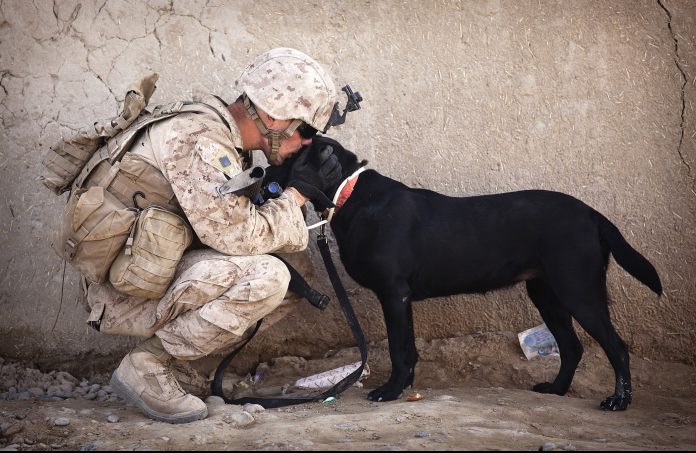A recent systematic literature review of physician suicide confirmed that doctors now have the highest suicide rate of any profession and stated that:
“It’s very surprising that the suicide rate among physicians is higher than among those in the military, which is considered a very stressful occupation.”
This may not be so surprising to those who have worked in both professions, and here is some inside information confirming the truth of this and offering some insight as to why medical training is more stressful than the army…
Part of the joy of my job is that I get to work with medical students from various universities and teach them something about eyes. I love eyes, and I love teaching medical students. They are bright and fresh-faced, full of life, and still filled with enthusiasm for medicine and for people. They love learning with me – and learning that it is possible to live in such a way that you can work as a doctor and still be full of joy and enthusiasm for medicine and for life after 30 years of practice – and I love to hear them share stories of themselves and their lives.
One such story brought me to a stop.
One of the students had previously been in the army. He said that preparing for medical exams was more stressful than going into active duty.
What?
He explained that in the army, you are progressively prepared to do your job, which is to fight the enemy. You are selected and trained with great rigour, and step-by-step prepared for what you are going to face. You are not just an individual, going it alone, but part of a team, working together towards a common goal, against a common enemy (albeit fellow human beings). And if you fall, there are systems in place to take care of you, and your family if need be, for it is recognised that this is a dangerous job and not everyone is going to make it.
In medicine, who is the enemy?
The enemy is each other. Medicine is highly competitive – to get into it, to get through it, and to specialise, if that is your choice. You are fighting each other for a place in medical schools, hospitals, and specialty training programmes. There is little to no sharing, of information, of resources, of ourselves, with each other.
You are thrown in the deep end at times. In theory, we are taught everything before we do it, but in practice, it does not always work out that way. Even the old adage of ‘see one, do one, teach one’ sometimes skips the first step. We can at times, especially in the early days, find ourselves in situations where we have little clue as to what to do, and someone’s life is at stake, and we just have to do the best we can.
And the enemy is ourselves, and our own beautiful, tender, bodies and beings. Should we not be able to take the strain, physically, mentally or emotionally, and should we falter or fall, not only will we not be supported in full, but we may be shunned, shamed, punished, kicked out, and some of us end up depressed, substance addicted, and even suicidal.
Stories of medical students
I have heard stories of students being told they could not take the day off to be with their wives when they were having their baby.
I have heard stories of students being told that leaving work early because their wife was suicidal and homicidal with post-natal depression was no excuse, that if it happened again they would be kicked out of medical school, and that they needed to tell their wife to just take Prozac and get on with it.
I have heard stories of students wanting to kill themselves because of the impossible pressures they were placed under, and their great fear of failing and letting themselves and their families down.
I have heard of incidents, large and small, which showed how students are treated with absolute disrespect and care-less disregard by those training them.
How can we be trained to truly care for people in a system that is so lacking in care for us?
How can we learn to be with people when we are trained to compete against our colleagues and friends?
The medical system does not foster qualities like mutual support, friendship, honesty, and transparency nearly as much as the military.
It does not care for its own when they falter, when they stumble and fall.
It does not acknowledge the dreadful stresses it puts on our doctors-to-be.
And we wonder why our doctors have anxiety, exhaustion, burnout, compassion fatigue and are killing themselves at the rate of one a day in the USA and one a week in the UK.
We are losing whole medical schools of people EVERY YEAR.
When are we going to say: ENOUGH.
When are we going to see that the system itself is sick and in need of a complete overhaul?
When are we going to start making medicine about true health and wellbeing again, about people, the way we care for ourselves and each other and the way we live our lives?
True answers are not going to come from external regulation, but from a quantum shift within the profession; from within the people who make it up… us.
Only when we start to take deep care of ourselves, as we all deserve; and to care deeply for each other; and when we stand together as one, to no longer stand for this care-less system we have helped to create and support, will true change start to evolve, from within.










When most of us make a mistake lives are not at stake but, just like Doctors and Soldiers, we can either feel supported or shamed as your article Anne so clearly presents. How many of us end up crushed into depression, addiction and suicide (slow or fast) by the systems and people in them? Let’s let medicine come to acknowledge the enormity of the fact that the quality we treat each other and ourselves with is itself either harming or healing, either poison or nurturing, fostering disease and death, or life and wellbeing.
I love how you bring up the difference between medical training and the military and that that difference is how we are with our fellow students, trainees etc. Feeling not supported or able to ask for help when training is the worst feeling you can have, especially when there is a life at stake or at least a treatment to be done which can relieve the person from pain or worsen it if not done correctly. I am working my first year as a dentist and it is very much the same. There are persons I can ask support of, yet it is so busy that it is not the full support that is needed at times. This causes me more stress than anything that I have to do per se. So indeed what if we could be more together in these professions when training and also when working because the pressure to do it correctly on your own is huge in these industries. Yet I wonder if we at all are made to do things on our own.